How Bubba Wallace journeyed through the racing world to become the only Black driver in NASCAR and one of the most compelling athletes in the sport
Tyler Lauletta

- Bubba Wallace has found himself at the center of the racing world in 2020.
- As the only Black driver in NASCAR, Wallace led the effort to ban the Confederate flag from the sport.
- After a noose was found in his garage stall, NASCAR rallied around Wallace in an unprecedented show of solidarity.
- Wallace still hasn't won at the top level of NASCAR but has already put together a productive career with wins in the lower tiers, becoming the first Black driver in decades to take the checkered flag.
Bubba Wallace has been at the center of the 2020 NASCAR season.
As the only Black driver in the racing league, Wallace led the charge to ban the Confederate flag from the sport, and been outspoken on issues of racism and unity both within the sport and in the world at large.
Wallace is still searching for his first win at the top level of NASCAR, but at 26, he has already found massive success in the lower tiers of the sport. Now racing for Richard Petty Motorsports in the No. 43 car that Petty himself made iconic in the sport, his eventual checkered flag feels like it could be coming sooner rather than later.
Take a look through the life and career of Bubba Wallace, and how he became one of the faces of the next generation of NASCAR's top drivers.
Darrell "Bubba" Wallace Jr. was born on October 8, 1993, to parents Darrell Sr. and Desiree.
Stud muffin back in the day! #tbt
A post shared by bubbawallace (@bubbawallace) on Aug 9, 2012 at 7:35am PDT
Both Darrell Sr. and Desiree were NASCAR fans, cheering on Dale Earnhardt, inundating Bubba with a passion for the sport early.
A post shared by bubbawallace (@bubbawallace) on Jun 8, 2014 at 11:48am PDT
Source: Blavity
Born in Alabama and raised in North Carolina, Wallace excelled as a young racer, beginning on go-karts at age nine.
In 2010, Wallace became a part of NASCAR's Drive for Diversity program, and would soon begin his ascendence through the ranks of the racing league.
In the K&N Pro Series East, Wallace won five races over his first two seasons. He was named Rookie of the Year for the 2010 season, becoming the first Black driver to win the award.
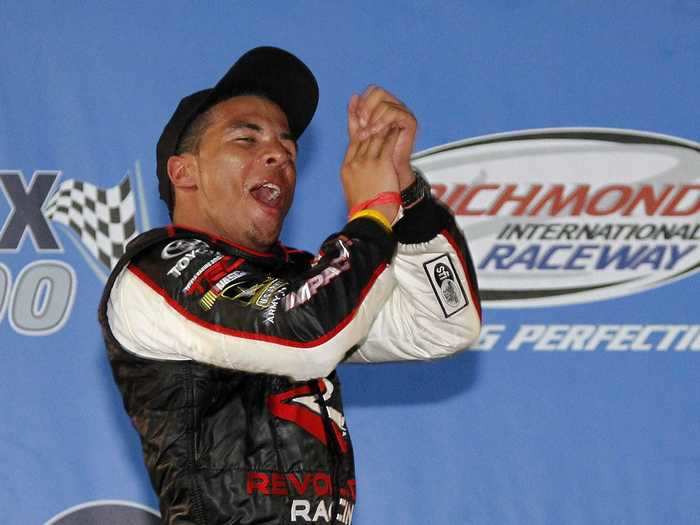
In 2012, Wallace got his first shot in Xfinity Series, the second tier of NASCAR racing.
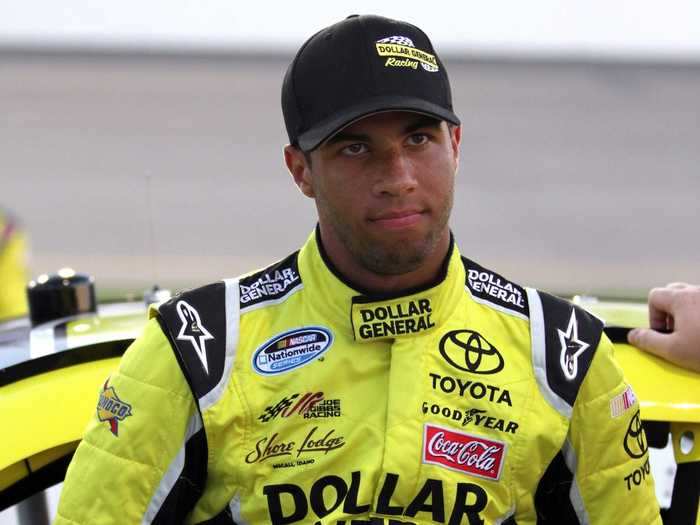
While he wouldn't yet race a full schedule, Wallace finished in the top 10 in three of the four races he started in 2012.
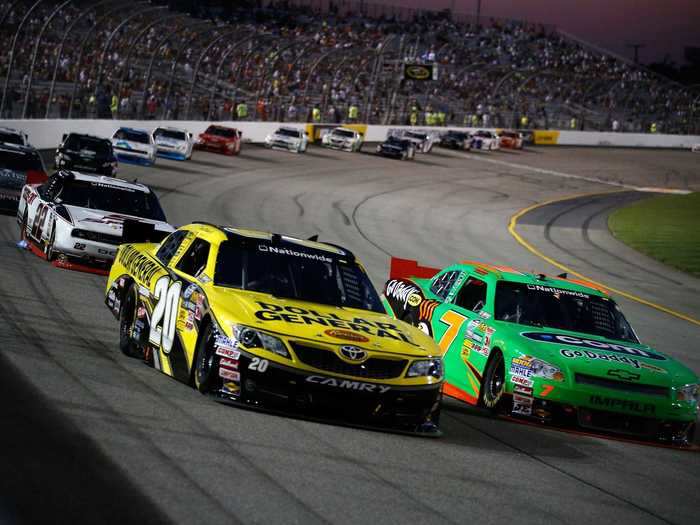
By 2013, Wallace was regularly racing in the NASCAR Camping World Truck Series, the league's other lower tier of competition.
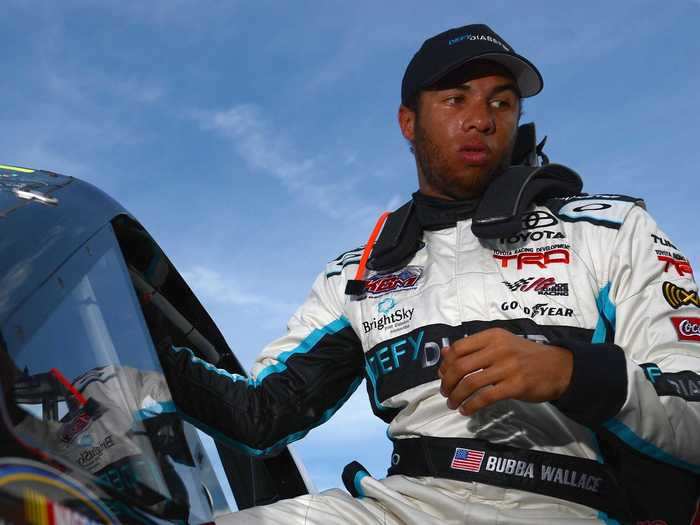
In October 2013, Wallace secured his first win on the circuit, taking the checkered flag at Martinsville to become the first Black driver to win a NASCAR race since Wendell Scott in 1963.
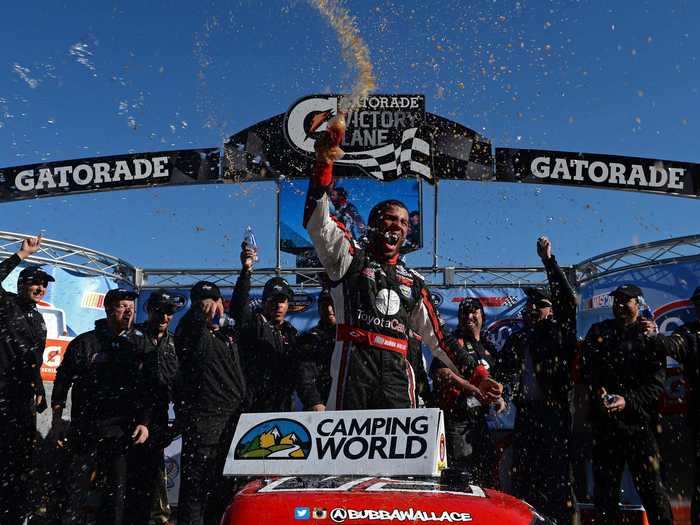
Wallace went on to find great success in the Truck Series, winning four races in 2014, and finishing second in five more.
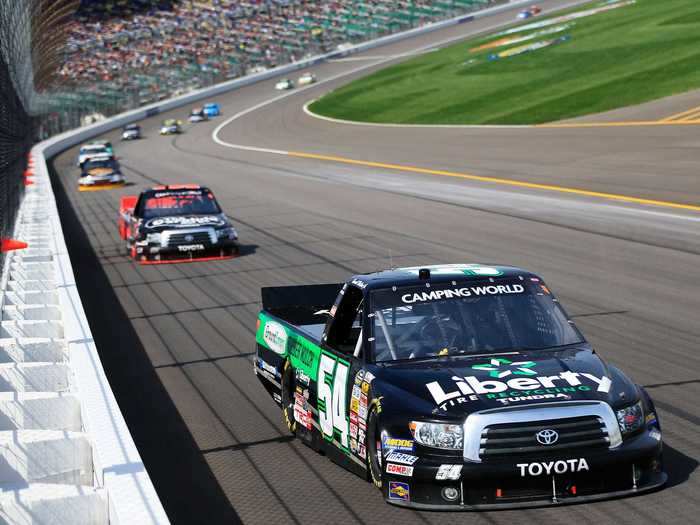
His prowess in the Truck Series helped promote him into the Xfinity Series as a regular for the 2015 season.
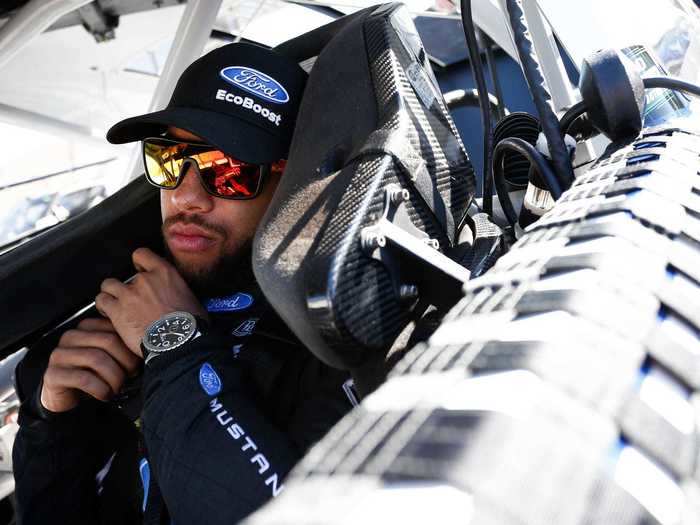
Driving for Roush Fenway Racing, Wallace never secured a win in the Xfinity Series but was a threat to push for the top 10 at any given track.
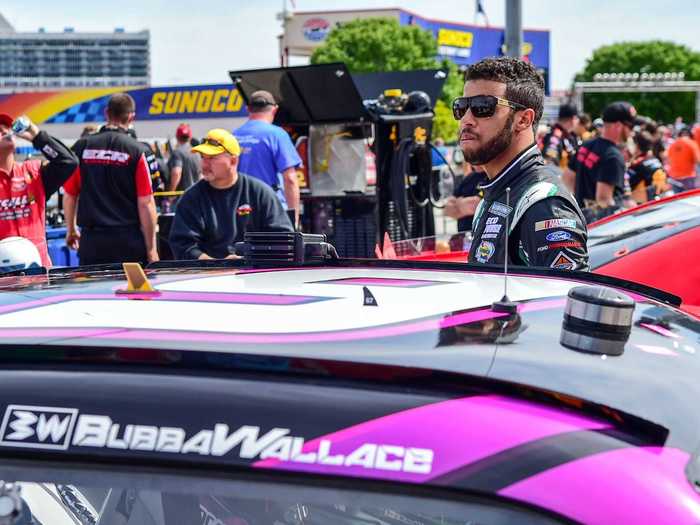
In 2017, Wallace got the call from Richard Petty Motorsports, and served as a mid-season replacement for driver Aric Almirola, who was dealing with an injury.
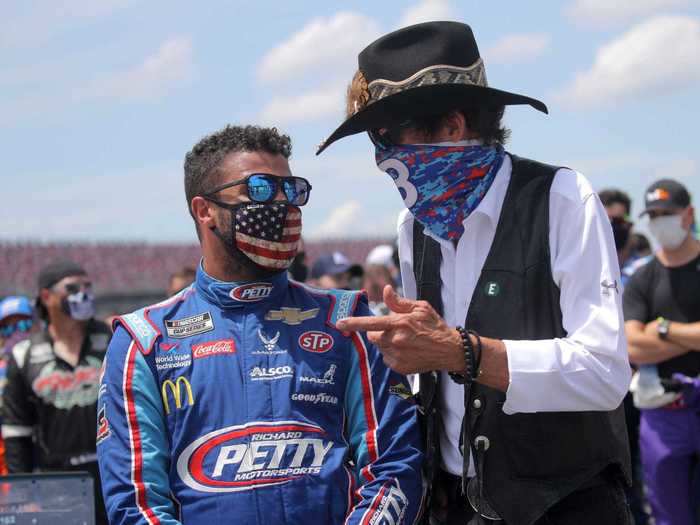
At Pocono, Wallace made his debut in top-flight racing, driving the No. 43 car that Petty made famous.
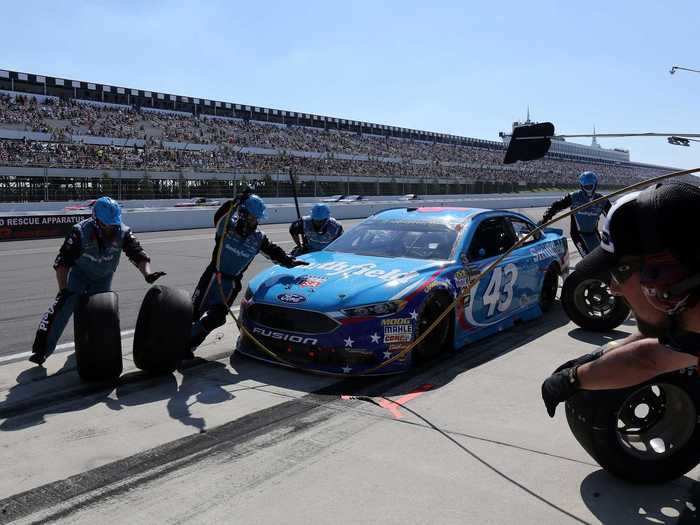
Wallace finished 26th, one lap behind the leaders. Ryan Blaney, one of Wallace's best friends in the sport, took the checkered flag.
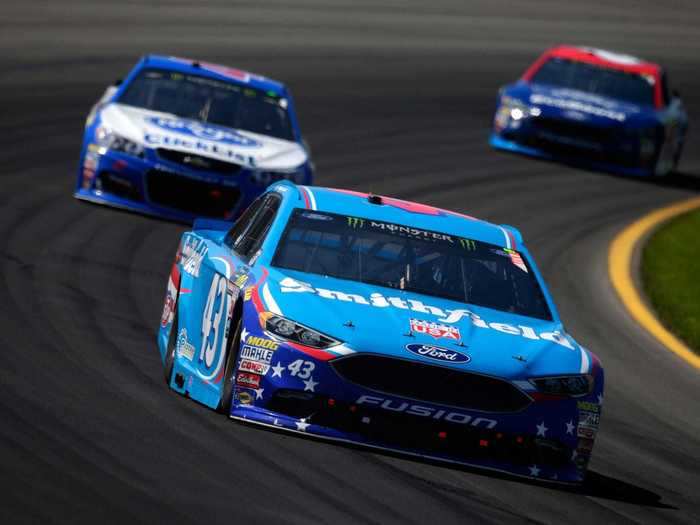
After congratulating Blaney in the winner's circle, Wallace fainted. "This is the third time this has happened," Wallace said. "I get so pissed off at myself that I just pass out."
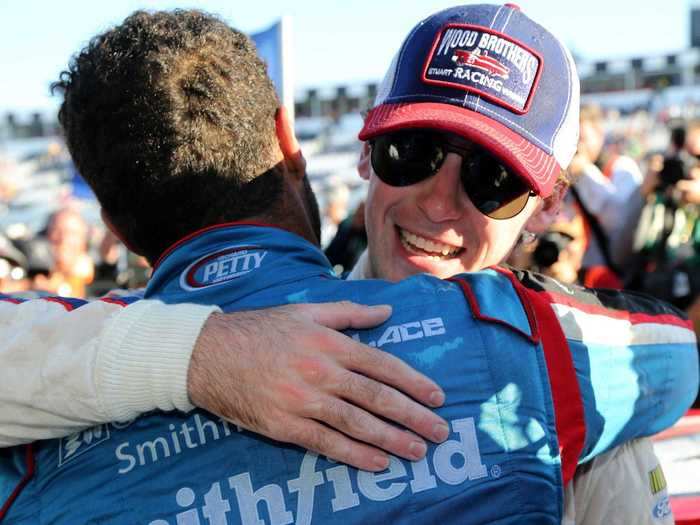
Source: North State Journal
Wallace would compete in three more races in the Cup Series that year, finishing in the top 20 of every race. His best finish was an 11th at Kentucky Speedway.
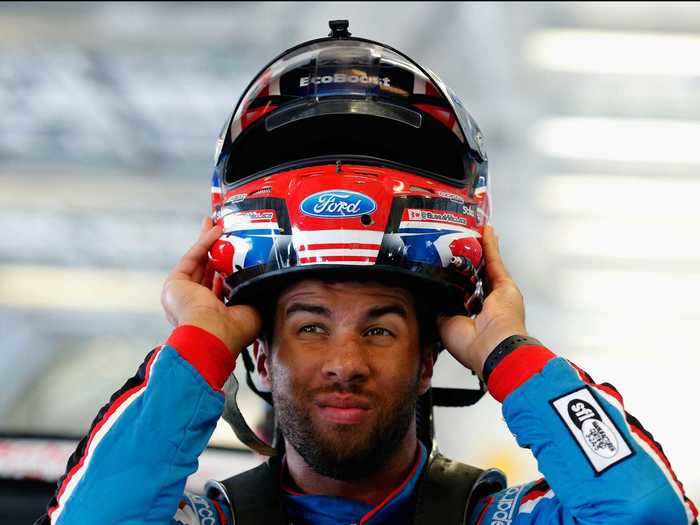
In 2018, Wallace took over the No. 43 car full time for Richard Petty Motorsports after Almirola left the team.
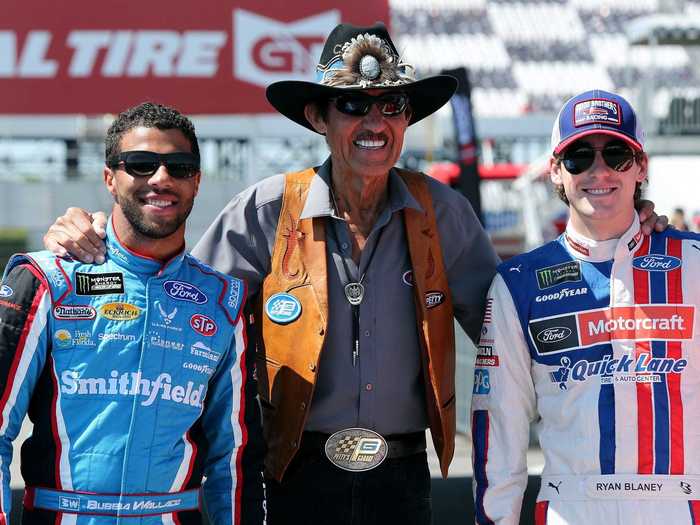
When the move was made official, Wallace became the first Black driver to compete full-time in the Cup Series since Wendell Scott.
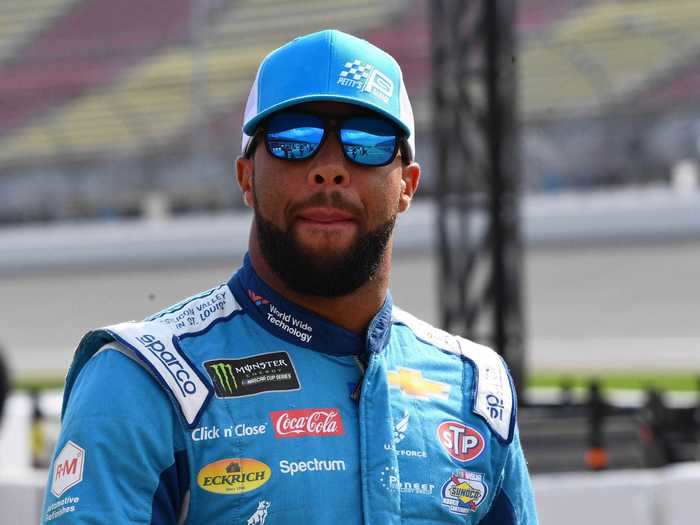
Wallace started off the season with a bang, finishing second in the Daytona 500 — the best finish of his racing career.
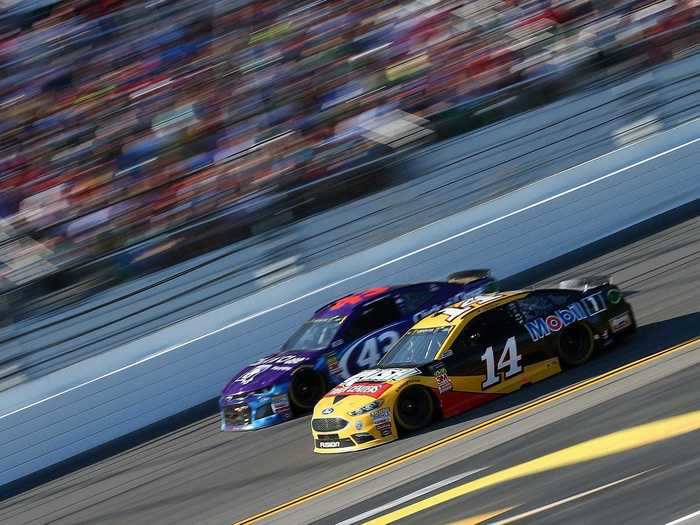
Wallace secured two more top-10 finishes in the 2018 season, and seven finishes in the top 20.
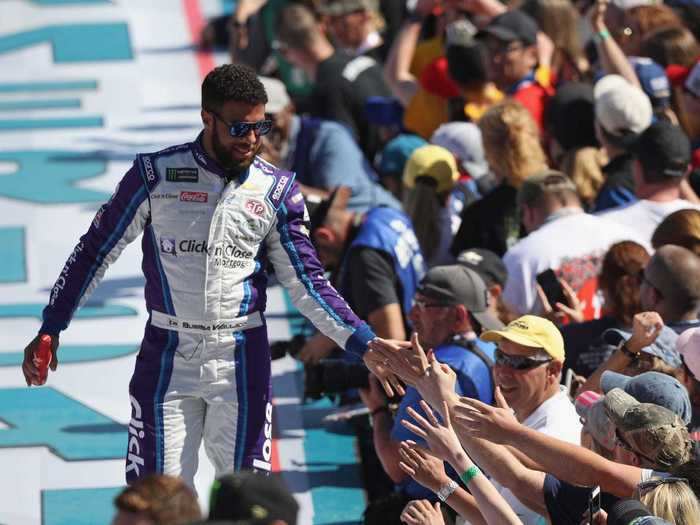
In 2019, Wallace had his best race at the Brickyard for a third-place finish. He seemed to develop a knack for showing up for the biggest races.
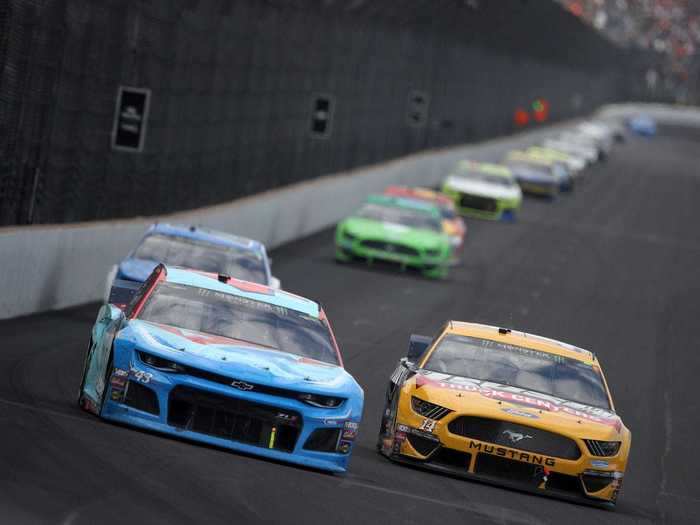
Wallace showed continued improvement at the start of the 2020 season, scoring a sixth-place finish and two more top-20s in three of the first four races of the year.
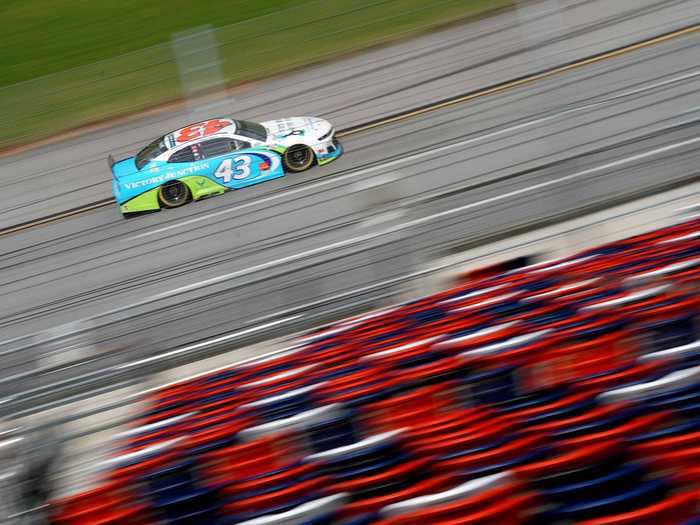
When the COVID-19 pandemic hit the sports world, the NASCAR season was put on hold until further notice.
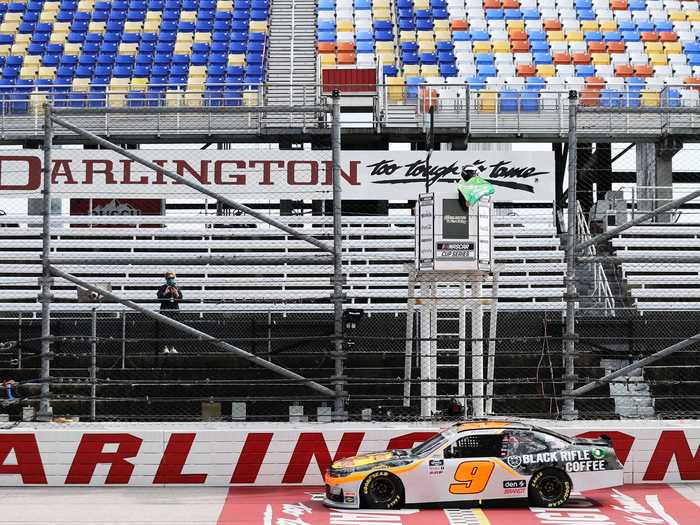
In the meantime, some of the biggest drivers in the sport, Wallace included, turned to iRacing to continue competing.
Streaming stuff came in just in time!!! Ride along with me and spotter @dhrcng3 todayLink in bio
A post shared by bubbawallace (@bubbawallace) on Mar 29, 2020 at 10:06am PDT
Wallace made headlines after he quit an iRacing competition just 11 laps into the race after getting into a wreck.
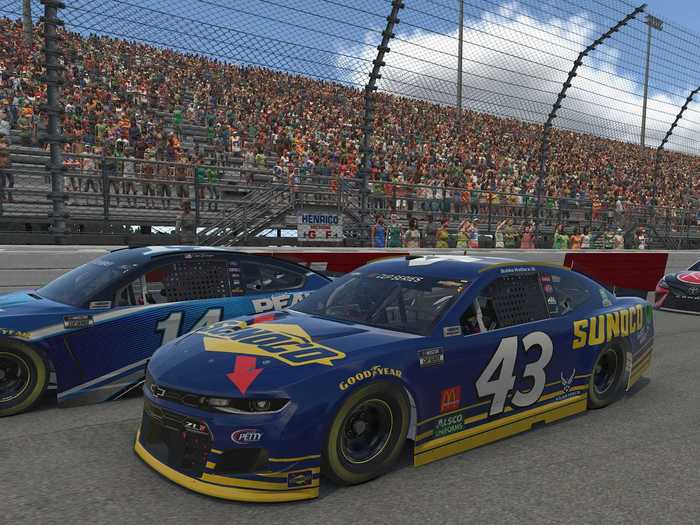
Wallace's sponsor for the iRacing Series, Blue-Emu, dropped him in response to the incident.
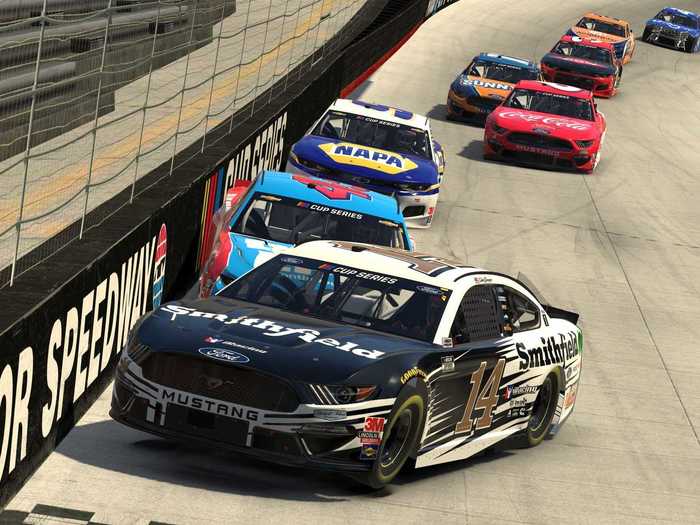
Source: TechCrunch
Wallace later said that he would take a step back from the iRacing competition. "I simply get burnt out after a day," Wallace said. "Not the game's fault, just been like that for years."
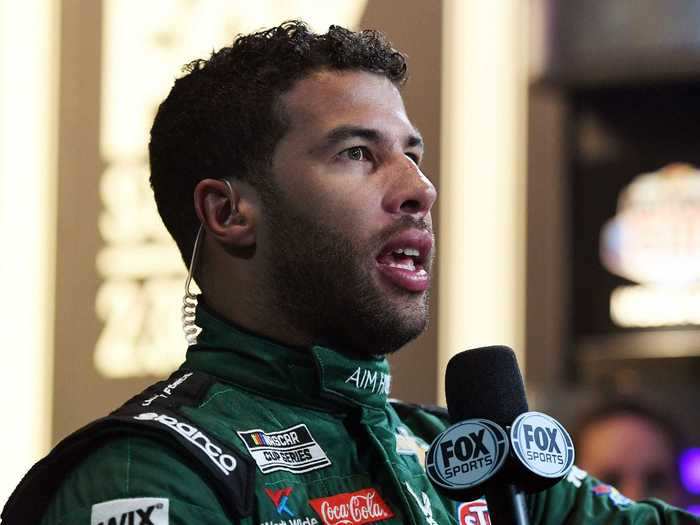
Source: Twitter
When racing made its return to the physical track, Wallace found himself at the center of a different kind of story.
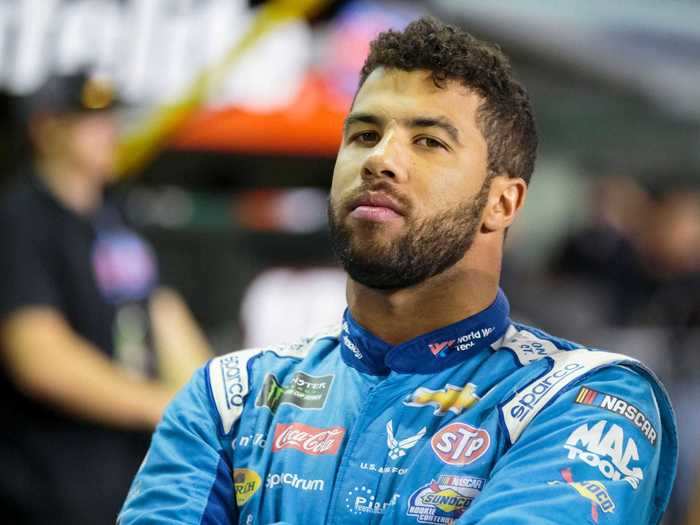
After the death of Ahmaud Arbery, who was shot by white men while jogging, Wallace began speaking more publicly about the issues of racism both in the racing community and the world at large.
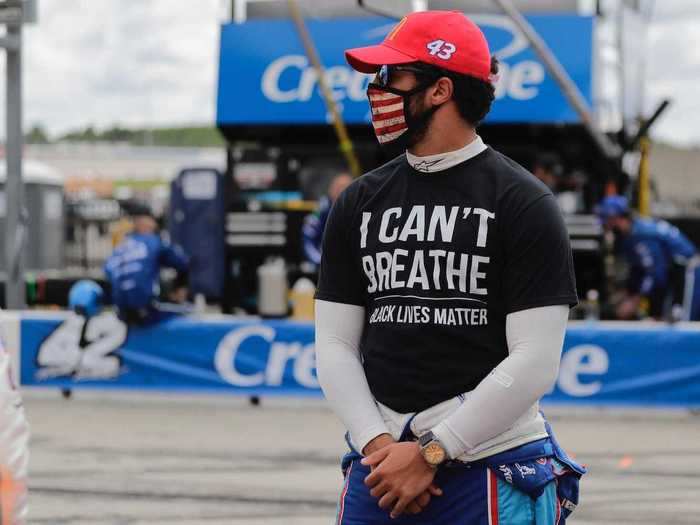
"The Ahmaud Arbery video was the final straw for me in being silent. That shook me to the core like nothing has in the past," Wallace told the Washington Post. "Something flipped inside of me to be more vocal and stand up for racial equality and make sure we get a hold on that and change the face of this world and get it to a better place.

Source: Washington Post
In June, Wallace called on NASCAR to ban the Confederate flag from its events. Two days later, they did.
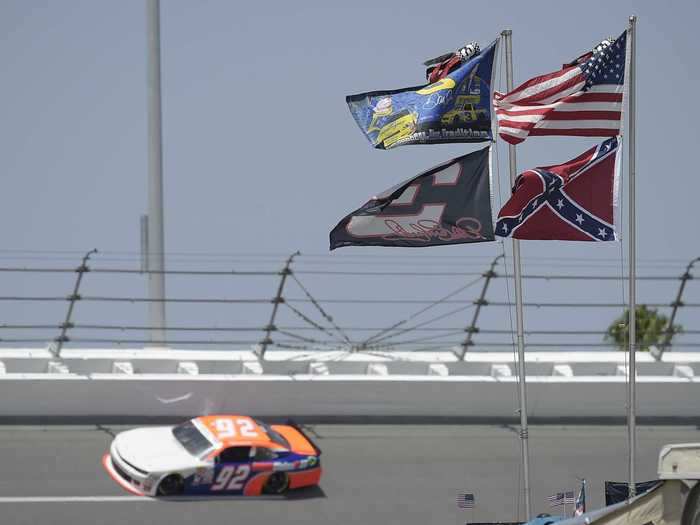
The day the ban was announced, Wallace raced with a new Black Lives Matter inspired paint scheme on the No. 43 car at Martinsville Speedway. He finished 11th.
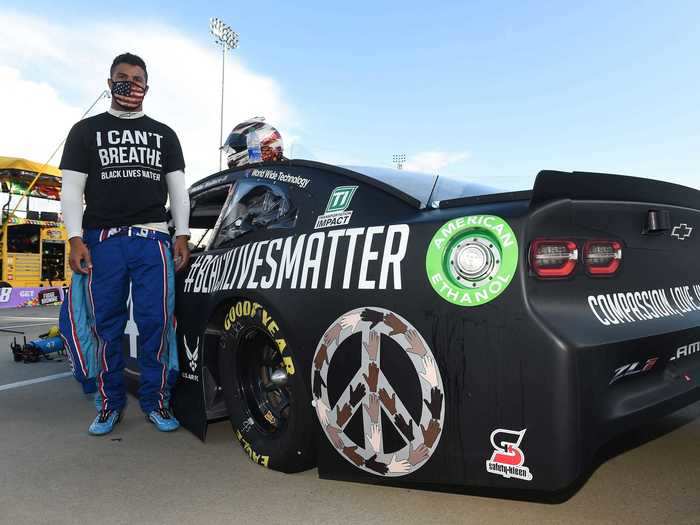
A week later, a noose was found hanging in Wallace's garage stall ahead of a race at Talladega Superspeedway. NASCAR immediately disavowed the apparent racist gesture against the only Black driver in the sport.
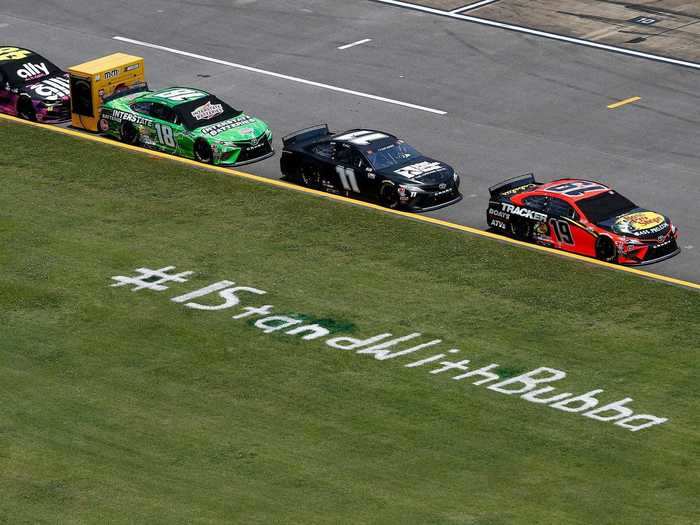
In response, Wallace's fellow drivers rallied around him, standing with him as the national anthem played in a moment of solidarity.
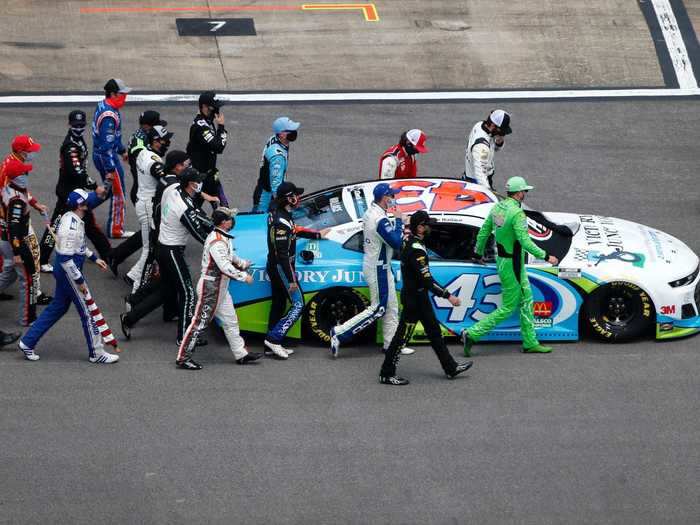
Wallace also received support from others around the sports world, including LeBron James.
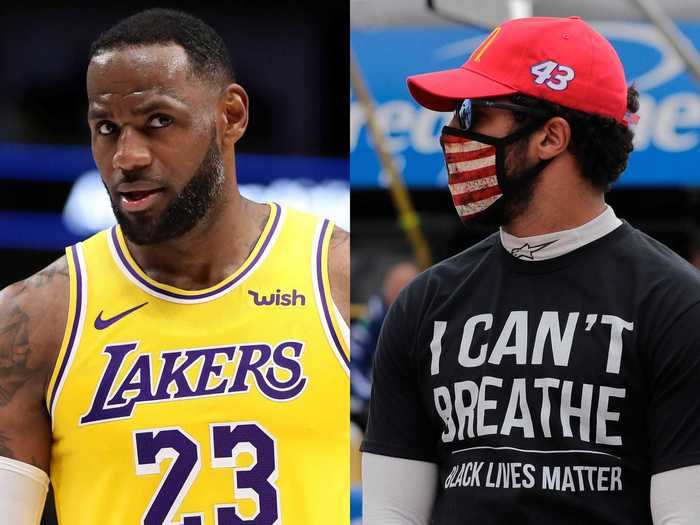
Team owner Richard Petty, who had not been present at a race for three months due to the COVID-19 pandemic, also came out to show support for his driver at Talladega.
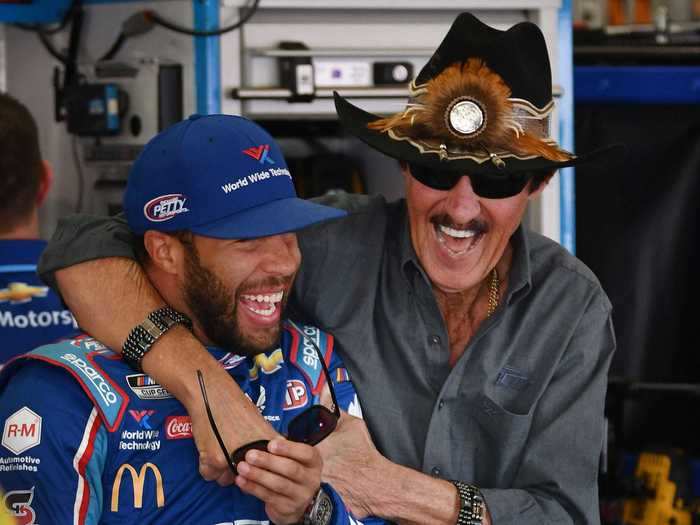
Wallace ran a great race at Talladega, but ultimately ran out of gas in the final laps and couldn't keep pace with the leaders. He received a helping hand from fellow driver Corey LaJoie, who helped push his car to pit lane after he had been running on fumes.
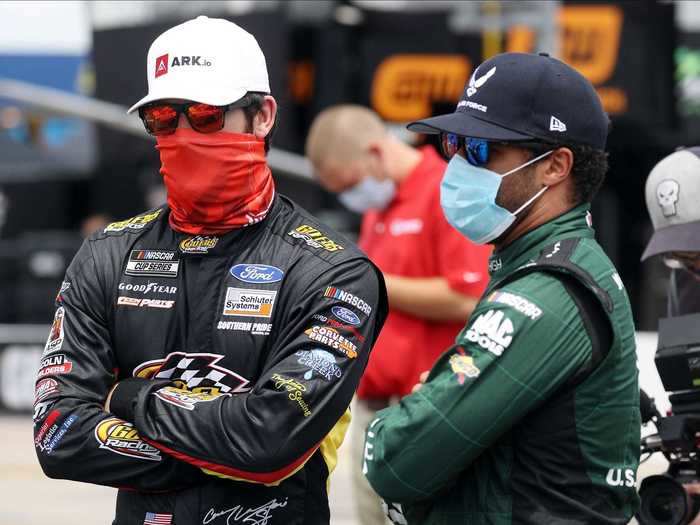
After the race, Wallace greeted a group of fans, many of whom were wearing Black Lives Matter shirts in support of Wallace.
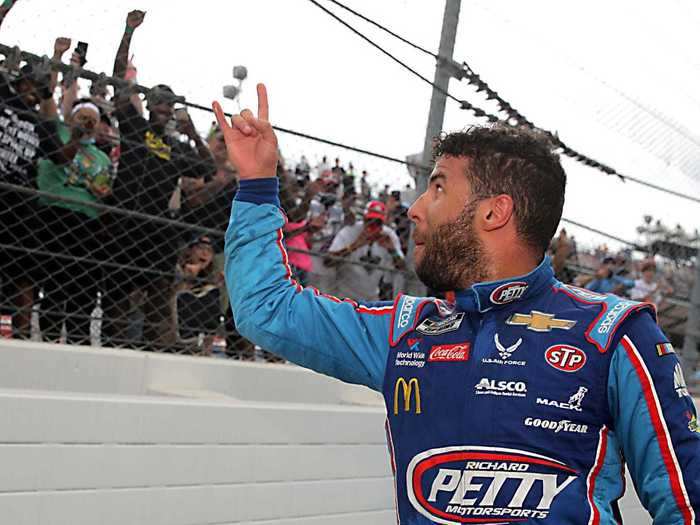
"You're not gonna take away my smile," Wallace said. "I'm going to keep on going."
The next day, the FBI concluded that the noose found hanging in Wallace's stall was not an attack against him, but rather a garage pull that had been hanging since at least October of the previous year.
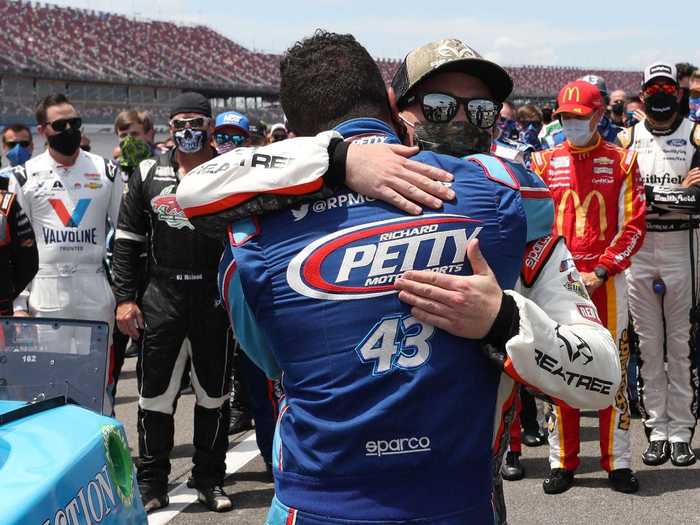
While the FBI's finding was a relief for the sport, a picture of the noose that NASCAR would later release showed why it had been perceived as a threat.
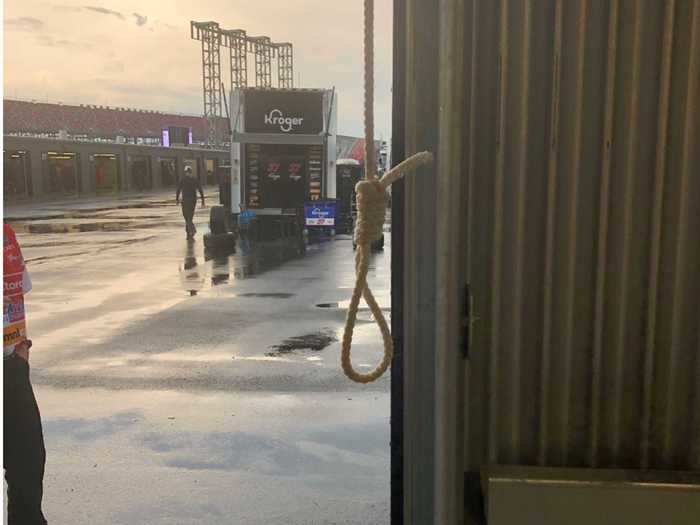
"I've been racing all my life. We've raced out of hundreds of garages that never had garage pulls like that," Wallace said. "From the evidence that we have and I have, it's a straight-up noose. The FBI has stated that it was a noose over and over again. NASCAR leadership has stated it was a noose."
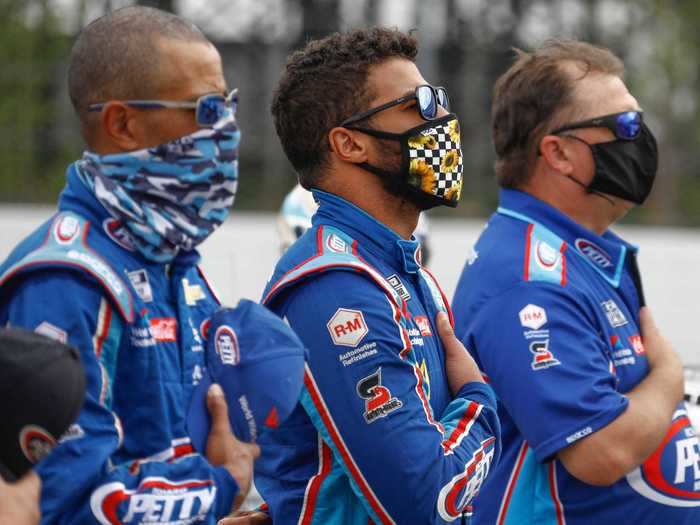
Since speaking out against the Confederate battle flag, Wallace has finished in the top 20 of four of the five races he's competed in.
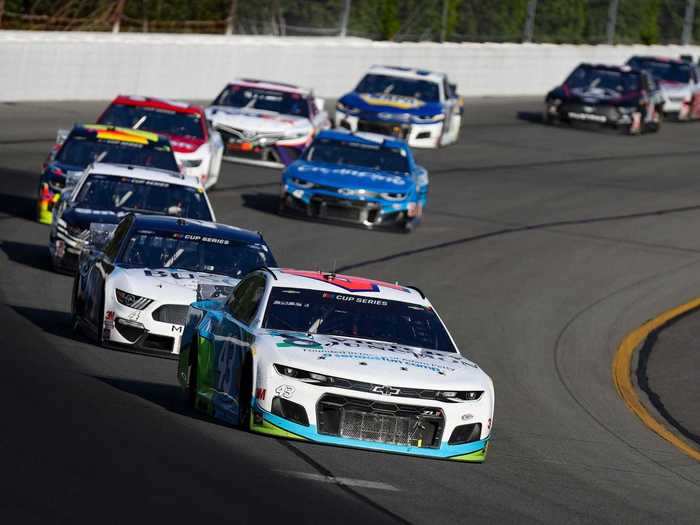
While he's still looking to secure his first Cup Series victory, Wallace's influence both on and off the track shows why he's one of the biggest names in the next generation of drivers.
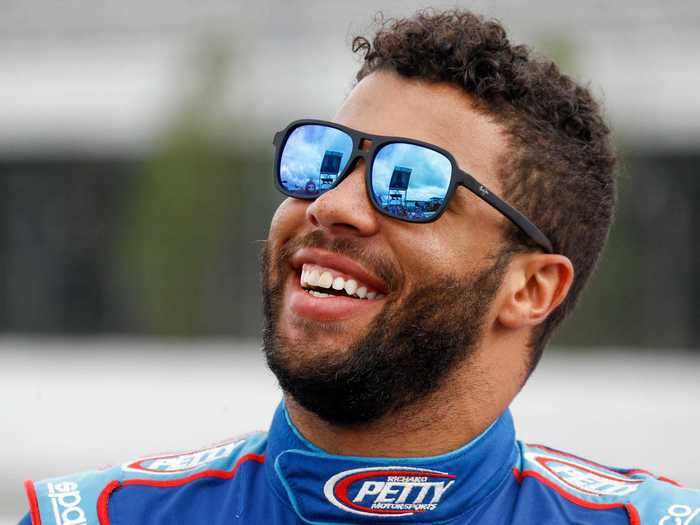
Read more:
READ MORE ARTICLES ON
Popular Right Now
Popular Keywords
Advertisement